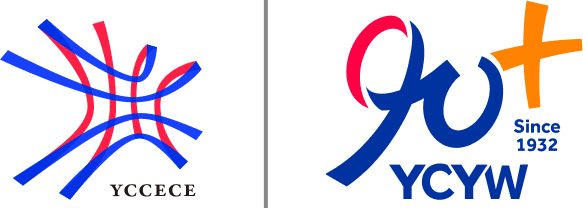Go Back
College News
News
YCCECE 2nd ECE Conference and Mengxue Successfully Concluded
News
15 Mar, 2025
18 : 22

Yew Chung College of Early Childhood Education (YCCECE) 2nd ECE Conference and Mengxue successfully concluded today. Themed "Family Education and School Collaboration – An Integration of Professional Early Childhood Education and Mengxue", the event was held at its Kowloon Tong campus and attracted close to 200 participants, including educators, researchers, and practitioners from around the world to discuss innovative methods in early childhood education and celebrate the timeless wisdom of Chinese Mengxue.
The opening ceremony featured a speech by Dr. WH Fok, a member of the YCCECE Board of Governors. He expressed support for the College's organization of large-scale academic seminars on education and Chinese cultural, praising the College's relentless efforts in promoting the integration of traditional Chinese educational concepts with modern research and practice.
The morning session began with keynote speeches from three prominent educators. Prof Chow Kai-wing, Professor Emeritus, Department of History, Hong Kong Baptist University, and Dean of Academic Affairs, New Asia Institute of Advanced Chinese Studies, delivered a lecture titled “Traditional Family Education and School Discipline: Application on Modern Education.” Professor Chau, who specializes in the study of Ming and Qing dynasties and modern Chinese history, discussed the importance of family, school, and social education in the growth of children and adolescents. He illustrated how to embody the spirit of “integration of family education” in modern education through examples from childhood education materials, including the “Family Instructions of Zhuzi” from the Song and Qing dynasties, as well as “Disciples’ Regulations,” “Disciples’ Duties,” and “Ten Precepts of Dongxue.”
Professor Susanna Yeung Siu-size, Professor from Department of Psychology at The Education University of Hong Kong presented a lecture titled “Home-School Collaboration and Child Development: An Educational Psychology Perspective.” She discussed strategies for fostering home-school collaboration that supports children's academic and emotional growth, drawing on theories of motivation, development, and social learning. Professor Yeung explored the impact of home-school collaboration on children's development from an educational psychology perspective and provided insights on overcoming challenges in this area. She also explained how the ecological systems theory of child development plays a role in home-school collaboration, highlighting various types of participation and practical strategies, such as parenting, communication, volunteer service, home learning, decision-making involvement, and community cooperation. She emphasized that home-school collaboration is a multifaceted process that requires effective communication between parents and teachers to set learning goals for children and create a supportive learning environment at home.
Dr. Tik Chi-yuen, Chief Executive of The Hong Kong Institute of Family Education, delved into the new strategies and importance of home-school collaboration in the era of artificial intelligence (AI) during his speech. He pointed out that advancements in AI technology are driving significant changes in educational models, allowing parents to use AI to understand their children's learning progress and provide additional resources to support their education. However, Dr. Tik also noted that family education faces many challenges in the AI era, emphasizing the need for parents to understand new technologies, enhance their involvement in education, and adapt to new educational tools. He mentioned that social workers can provide indispensable support in family education. Additionally, Dr. Tikproposed effective strategies for collaboration between parents and teachers to tackle the educational challenges of the AI era.
In the afternoon session, Dr. Candy Yeung, Founder and Honorary Chairman, The Spiritual Guidance Model, delivered a lecture on “The Concept of Family Education in the Bible.” In her presentation, she elaborated on the reasons for choosing the Bible as guidance for family education, emphasizing its authenticity, objectivity, comprehensiveness, and rich examples from everyday life, covering the journey from childhood to adulthood, becoming parents, and even grandparents, presenting both positive and negative cases. Dr. Yeung shared the family education concepts found in the Bible and her experiences in applying them in her own family and the families she serves. She encouraged attendees to transition from being “tiger moms” to “panda moms,” walking alongside the parents (mothers, fathers, grandparents, etc.) of the families they serve to build “close, loving, and joyful families.”
Professor Eric Cheng chi-keung, Vice President (Academic) of YCCECE, provided an in-depth analysis of the educational philosophy of the “Meng Gua” (the hexagram of the Beginner) from the Book of Changes. He discussed the educational significance of the Meng Gua from both macro and micro perspectives, emphasizing that education should balance tradition and innovation while advocating for teachers to guide students with a rigorous attitude. His discussion aimed to explore educational opportunities, values education, and gradual curriculum design, highlighting that the essence of education should focus on eliminating students’ ignorance. Professor Cheng concluded, “The Meng Gua teaches us that education is the key to changing one’s destiny. Only by valuing questions and learning how to learn can we achieve excellence.”
Professor Kerry Lee, President of YCCECE and Chair Professor of Child Development, stated, “Today’s seminar is not only an academic exchange but also an educational inspiration. We deeply recognize that ‘integration of family education’ is not just a fusion of educational concepts but also a call for future educational development. The joint efforts of families, schools, and society are key to creating a bright future for our children.” Professor Lee once again thanked the Hong Kong Chinese Middle Schools Association, the Hong Kong Chinese Cultural Development Association, and the Hong Kong Institute of Family Education for their support, as well as all the experts and scholars for their generous sharing, which contributed to the success of the seminar.
In the future, YCCECE will continue to uphold its mission of “developing personal potential, nurturing international perspectives, and moral values,” committed to promoting the integration of early childhood education and Chinese Mengxue, contributing to the educational development of Hong Kong and the Asia-Pacific region.


















